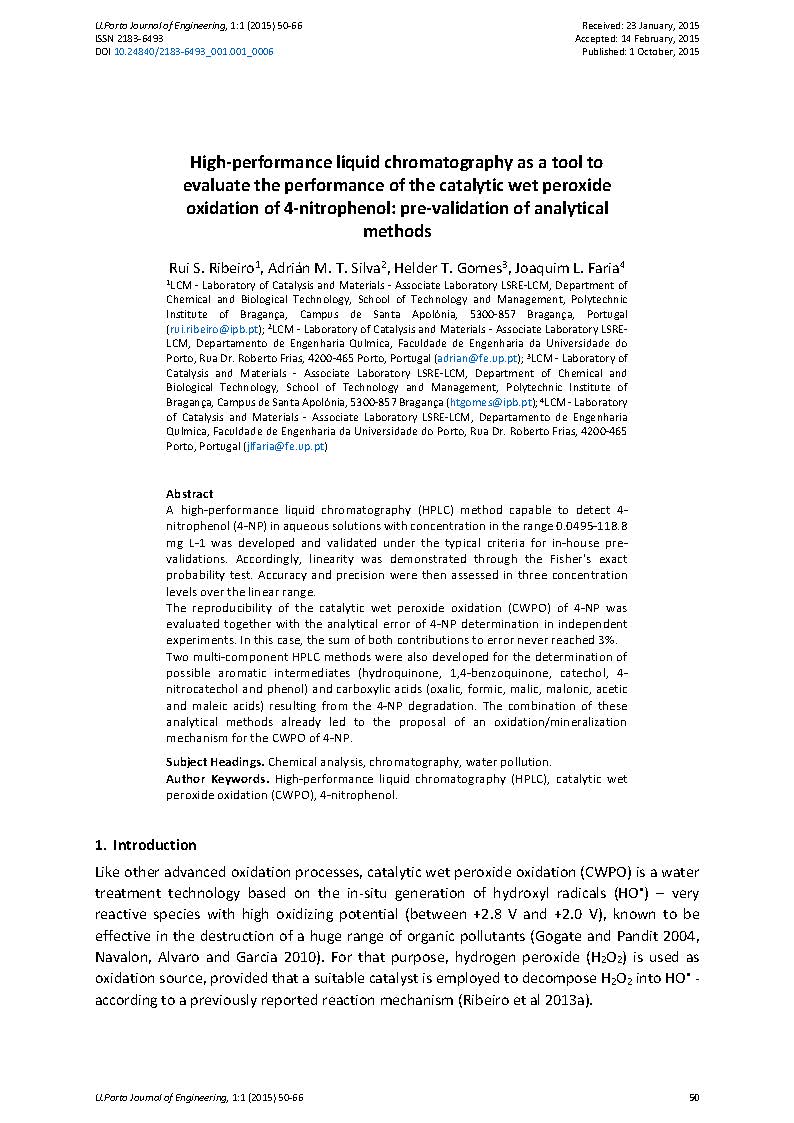High-performance liquid chromatography as a tool to evaluate the performance of the catalytic wet peroxide oxidation of 4-nitrophenol: pre-validation of analytical methods
Main Article Content
Abstract
A high-performance liquid chromatography (HPLC) method capable to detect 4-nitrophenol (4-NP) in aqueous solutions with concentration in the range 0.0495-118.8 mg L-1 was developed and validated under the typical criteria for in -house pre-validations. Accordingly, linearity was demonstrated through the Fisher’s exact probability test. Accuracy and precision were then assessed in three concentrationlevels over the linear range. The reproducibility of the catalytic wet peroxide oxidation (CWPO) of 4-NP was evaluated together with the analytical error of 4-NP determination in independent experiments. In this case, the sum of both contributions to error never reached 3%.Two multi-component HPLC methods were also developed for the determination of possible aromatic intermediates (hydroquinone, 1,4-benzoquinone, catechol, 4-nitrocatechol and phenol) and carboxylic acids (oxalic, formic, malic, malonic, acetic and maleic acids) resulting from the 4-NP degradation. The combination of these analytical methods already led to the proposal of an oxidation/mineralization mechanism for the CWPO of 4-NP.
Downloads
Article Details
Authors who publish with this journal agree to the following terms:
- Authors retain copyright and grant the journal right of first publication with the work simultaneously licensed under a Creative Commons Attribution License that allows others to share the work with an acknowledgement of the work's authorship and initial publication in this journal.
- Authors grant the journal the rights to provide the article in all forms and media so the article can be used on the latest technology even after publication and ensure its long-term preservation.
- Authors are able to enter into separate, additional contractual arrangements for the non-exclusive distribution of the journal's published version of the work (e.g., post it to an institutional repository or publish it in a book), with an acknowledgement of its initial publication in this journal.
- Authors are permitted and encouraged to post their work online (e.g., in institutional repositories or on their website) prior to and during the submission process, as it can lead to productive exchanges, as well as earlier and greater citation of published work (See The Effect of Open Access).

